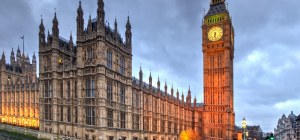40: Great Repeal Bill – You don’t have to worry about a thing
The House of Lords has now completed five days of its 10-day Committee stage debate on the Bill.
Days 1 to 3 (21, 26 and 28 February) concerned clauses 1 to 6, covering repeal of the European Communities Act 1972 and the retention of existing EU Law, and Days 4 and 5 (5 and 7 March) concerned Clauses 7 and 8, covering the main powers in connection with withdrawal. We reviewed Day 1, which was entirely concerned with clause 1, here.
The amendments debated on Days 2 to 5 fell into two groups: those seeking to preserve, on the face of the Bill, particular aspects of EU law or policy, and those concerned with how the Bill would, technically, retain existing EU law. This post discusses the first group.
Days 2 and 3
Days 2 and 3 saw further debate on clause 1 of the Bill (making just under 19 hours of debate on clause 1 altogether), but the Lords again took the opportunity to debate Brexit in general – indeed, at times, some peers criticised the debate for being too similar to that at Second Reading (when the principle of the Bill was discussed).
So, in respect of clause 1, the Lords debated many amendments which sought to limit, or place pre-conditions on, the repeal of the ECA 1972, and so influence the outcome of the withdrawal negotiations and moderate the effect of Brexit in general. For example, amendments to provide for:
- the continuation of existing EU reciprocal healthcare schemes (the E111 card);
- retention of mutual recognition of medicines and clinical devices, and membership of the European Medicines Agency;
- continued involvement in the Horizon 2020 and Erasmus university programmes;
- continued coordination of foreign and security policy, including association with the EU’s military staff and the European Defence Agency;
- continued participation in the ERDF and community cohesion funds, the European social fund and the European investment bank; and
- continued UK participation in measures to promote internal security, police cooperation and counter-terrorism, eg the European arrest warrant, the European Criminal Records Information System, the passenger name recognition directive, Europol.
The Government’s response to all these issues was consistent: these matters may be of mutual benefit to the UK and EU, but remained subject to negotiation; substantial progress had been made in the first phase, and the Government would endeavour to ensure that it made good progress in the next phase; it hoped to be able to provide more information on Report; Parliament would have a meaningful vote on any final deal.
Various Lords tabled amendments to continue the application of the Charter of Fundamental Rights, including, on Day 4, specifically in respect of the protection and rights of children (or, alternatively, that the United Nations Convention on the Rights of the Child be incorporated into UK law). Here, the Government’s response was more robust: it was not appropriate, because incorporating the Charter would give an ongoing role for European Court of Justice, and that was not consistent with the referendum result. In any event, there was adequate protection in UK law. However, the government acknowledged that there was ‘unease’ about the Government’s commitment to such rights. As one Minister described it, there was:
‘…a certain regard that the Government today will take the first opportunity to cast these rights aside, to scrape the barnacles off the boat to allow the ship to move faster. I assure the Committee that they are integral parts of the engine of the ship and we shall not be discarding them. That is how important they shall remain.’
Day 4
Day 4 started with consideration of the impact of Brexit on family law.
Lady Butler-Sloss, long-time head of the Family law division, said she was:
‘dismayed … by the inadequacy of the current wording of the Bill, which does not refer specifically to family law and does not deal with the main issue of reciprocity and the importance of the European court in Luxembourg’.
She cited the 140,000 EU divorces between the UK and other member states and 1,800 EU child abduction cases as evidence of why specific provision was required covering jurisdiction, recognition and enforcement, and co-operation. Much of the debate focussed on the relative merits of Brussels IIa (the current EU arrangement) and the Hague convention (which has wider application, and would be the UK’s ‘no deal’ fall back position).
The Government responded that it was committed to maintaining an effective system for the resolution of cross-border family law disputes once the UK leaves the EU in 2019, and:
‘… wanted to agree a clear set of coherent common rules about: which country’s courts will hear a case in the event of a dispute – that is choice of jurisdiction; which country’s law will apply – that is choice of law; and a mutual recognition and enforcement of judgments across borders … [A]n effective framework of civil judicial co-operation, which includes family law, is an important part of any deep partnership we want to establish with the remaining members of the EU. We believe that the optimum outcome for both sides will be a new agreement negotiated between the UK and EU as part of a future partnership which reflects our close existing relationship.’
The issue of animal sentience, which generated a lot of heat (and social media activity) during the Bill’s Commons stages, also exercised the Lords. But the government was unmoved: it reiterated that the purpose of the Bill was to provide continuity, and while the Bill’s powers could be used to address deficiencies in UK law on Brexit, it was not about improving the existing EU laws on animal sentience which were being retained. However, that would be done through the Government’s Animal Welfare (Sentencing and Recognition of Sentience) Bill, introduced late last year, which was a significant improvement on existing EU protection.
Day 5
On Day 5, the Lords debated a number of amendments to the Bill which sought to preserve the rights of EU citizens living in the UK, in line with the outcome of the Phase 1 negotiations and the Withdrawal Agreement. The Government’s response was that such amendments were not appropriate and/or unnecessary because, first, Phase 1 was only the first stage in negotiations; second, the Withdrawal agreement (which would give legal effect to the Phase 1 outcomes) would be an international treaty and, as such, would have no direct impact on our domestic law – those rights and obligations would be created in domestic law by way of domestic legislation; and, third, because the government was making provision for an efficient and effective process to acquire settled status (including for arrivals during the implementation period), pursuant to regulations made under the immigration legislation.
The Lords also debated various amendments concerned with environmental protection matters, eg to require public authorities to have special regard to the maintenance of certain ‘EU derived’ environmental principles (ie the precautionary principle, preventive action, rectification at source, ‘polluter pays’ and policies for sustainable development), to encourage biodiversity and food security, membership of the EU emissions trading scheme (ETS), to establish the powers and resources of a new environment watchdog. The Government considered these amendments ‘unnecessary’: the Prime Minister had stated that Brexit would not mean a lowering of environmental standards and, as evidence of that, the Government had already announced a new policy statement setting out the UK environmental principles and the creation of a new statutory body to advise and challenge Government (but no further details were given). Membership of the EU ETS was subject to negotiations.
The Lords also debated amendments to ensure that the clause 7 powers (to correct deficiencies in ‘retained EU law’) could not be used to diminish protection for discrimination, eg sex, race, colour, ethnic or social origin, genetic features, language, religion or belief, political or any other opinion, membership of a national minority, property, birth, disability, age or sexual orientation. The Government responded that:
‘the concern expressed about the future of equality rights after we leave the EU and the assumption that new freestanding anti-discrimination rights are in some way needed to offset the impact of our exit is misplaced…’
because, in outline, the Equalities Acts 2006 and 2010 and Human Rights Act 1998 required a higher standard of protection in UK law than EU requirements. The Government had also tabled an amendment in the Commons (now Schedule 7, paragraph 22) to require ministerial statements to be made about amendments made to the Equality Acts under each piece of secondary legislation under key powers in the Bill.
In short, no matter what aspect of EU law or policy the Lords raised, the Government’s response was the same: we don’t need to deal with that in this Bill, because it’s a matter for negotiations, or it’s covered by existing UK law, or we’ll deal with it by introducing new UK law. We shall see at Report stage whether their Lordships are convinced by the Government’s position, but we suspect many of their worries may remain.
‘You don’t have to worry about a thing, Cause every little thing is gonna be alright’ (Bob Marley and the Wailers, Three Little Birds)
Enjoying the blog? Why not try the Great Repeal Bill Blog playlist on Spotify.











